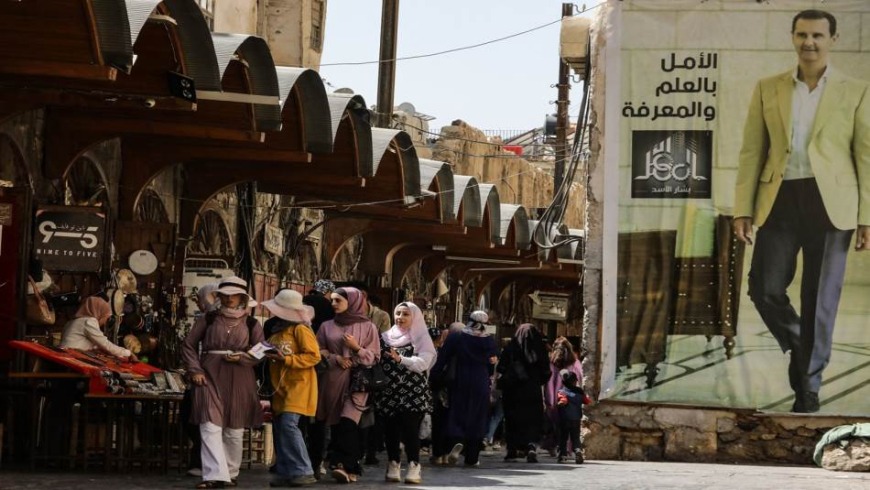Neither the photo with Hafez Bashar al-Assad nor the videos in which Shadi Qasso promoted the regime by capitalizing on his social media popularity spared him from arrest. Upon his return from Istanbul, Syrian regime authorities swiftly detained the comedian, accusing him of producing “low-quality content” considered inappropriate for Syrian society.
Qasso’s arrest was part of a broader crackdown targeting social media activists. The ambiguous charge of “low-quality content” was left deliberately vague, making it applicable to nearly any online user. Despite its broad nature, the regime’s security apparatus focused on a specific group, swiftly apprehending some while others managed to flee to Lebanon and beyond.
The real motives behind these arrests likely vary. Some may have been sparked by content creators criticizing the dire living conditions in Syria, while others may have been driven by low-ranking officials seeking to extort popular influencers with large followings for a share of their platform earnings. Yet, the regime consistently leans on the rhetoric of “preserving social values” and “protecting public morality,” especially in cities like Damascus, Homs, and Latakia, where dissent is crushed.
Regime Arrests YouTuber Shadi Qasso: Once its Propaganda Promoter
During the early stages of the armed uprising, as Islamist fighters began to take the lead, regime-affiliated media promoted an image of societal “liberation” as part of a counter-narrative. They presented a regime that embraced openness and liberalism through art and culture, in stark contrast to the religious extremism of the opposition, positioning themselves as the preferable alternative.
This effort peaked with the release of multi-season dramas portraying themes previously unfamiliar to Syrian audiences, such as marital infidelity with relatives and open relationships, all set against the backdrop of nightlife and punctuated by provocative, vulgar dialogue. The objective was to showcase the regime as a force of “modern” liberation in contrast to the conservative religiosity of its opponents.
However, as the conflict subsided and the battles quieted, the regime gradually reverted to its more traditional, socially conservative stance. This shift became official in 2020 when Bashar al-Assad, addressing a group of clerics at the Othman Mosque in Damascus, condemned Western freedoms and “modern liberalism,” accusing them of promoting moral decay and attempting to sever individuals from their values and faith.
Around this time, the mysterious death of Sheikh Muhammad Saeed Ramadan al-Bouti occurred, and the regime intensified its control over religious discourse. Clerics whose messages did not align with the regime’s policies were quietly removed, and religious programming was reduced to only those voices that conformed. Some clerics were turned into entertainers, telling fantastical stories designed to amuse, rather than educate, cultivating a culture of religious mockery.
As the regime reembraced its conservative roots, Bashar al-Assad praised the role of religious institutions in shaping societal values. This marked a return to the regime’s long-standing strategy of handpicking religious leaders to guide society in alignment with state interests.
Meanwhile, secular critics continue to denounce Islamist movements opposing the regime, yet overlook the loyal religious institutions backed by the state. Since Hafez al-Assad’s rise to power, the regime has selected clerics to legitimize its rule, positioning them as intermediaries between the state and society. The Ministry of Religious Endowments was empowered, and religious schools received state support. Bashar al-Assad has continued this practice, using religious figures to control society in concert with the security apparatus, adjusting their influence as circumstances demand.
Now, under the guise of moral guardianship, the regime’s repressive apparatus is arresting a select few content creators, claiming to “cleanse” society. In reality, these individuals are victims of a regime whose ideological stance is ever-shifting. It is clear that both senior and junior officials see opportunities for personal financial gain, targeting those with large social media followings, especially those returning from abroad with significant funds in their accounts.
This article was translated and edited by The Syrian Observer. The Syrian Observer has not verified the content of this story. Responsibility for the information and views set out in this article lies entirely with the author.


